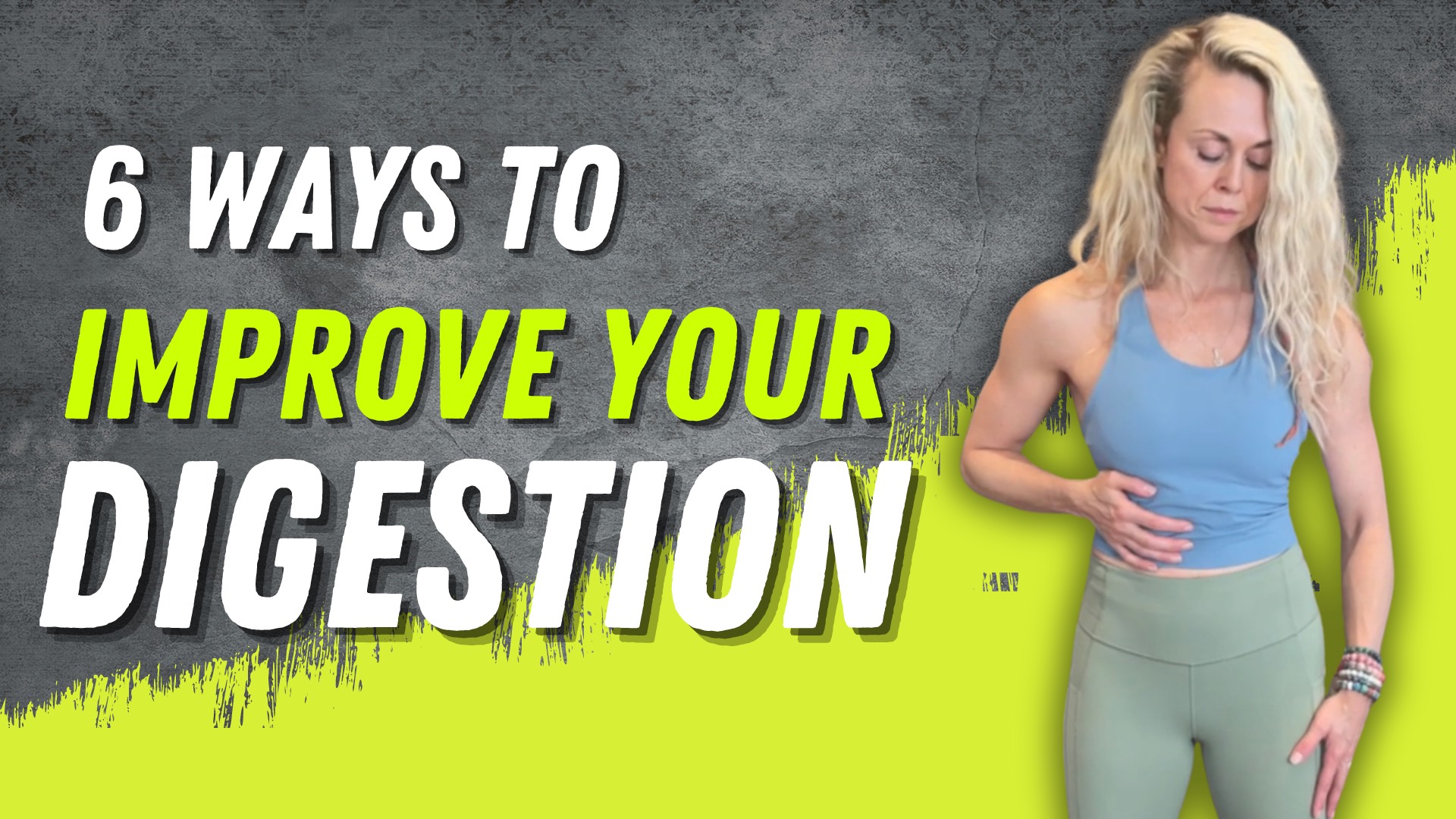Are you experiencing chronic gut issues? Have you tried every probiotic and gut protocol, treated parasites, and still can’t seem to resolve your issues? In this blog, we’ll explore four effective ways to truly heal your gut.
First and foremost, it’s essential to believe in your body’s innate capacity to heal. No supplement or external remedy can fix you entirely; the true power of healing lies within you. Understand that you don’t need to depend on someone or something else because you possess this incredible capacity within yourself.
Rather watch or listen?
4 Ways to Improve Chronic Gut Issues
1. The Nervous System
Living in a constant state of fight or flight, where you’re perpetually worried about food and its effects, keeps your body in survival mode. This state slows digestion, reduces motility, and weakens your immune responses. Healing your nervous system is crucial.
Transitioning from a fight-or-flight state to a state of connection, rest, and digestion is essential. This process varies for each individual. For some, it may involve therapy or counseling; for others, it could be somatic work, breathwork, meditation, or social connection.
Understanding your nervous system and how to shift it to a healing state is key. Check out my other blogs on the nervous system, mapping your nervous system, and the polyvagal theory for deeper insights. Remember, healing starts in a safe place.
2. Digestion
When in a fight or flight state, blood flow diverts from the digestive tract, leading to maldigestion. This results in decreased stomach acid, pancreatic enzymes, and bile production, causing poorly digested food and potentially leading to bacterial or fungal overgrowth and leaky gut.
To optimize digestion:
- Limit water or fluids around your meals (15 minutes before and after, and during).
- Focus on breathing: take three diaphragmatic breaths before eating to enter a parasympathetic state.
- Chew your food 20-30 times.
- Take a short walk after eating to aid digestion.
3. Testing
Understanding the root cause of your gut issues is imperative. While nervous system dysregulation is often a factor, deeper issues may also be present. Testing can reveal:
- Chronic colonization of a pathogen
- Presence of H. pylori
- Dysbiosis (imbalance of bacteria)
- Digestive efficiency (pancreatic elastase, fat in stool)
- Gut immune system health (secretory IgA)
- Antibodies to gluten or other potential allergens
- Leaky gut
Comprehensive stool testing, SIBO testing, and other diagnostic tests can provide definitive answers and guide a systematic treatment approach. Working with the right provider ensures this process is not overwhelming.
4. Nutrient Repletion
Eliminating certain foods and considering a therapeutic food plan for a short period might be necessary, but the goal is always to optimize nutrient intake to support healing and thriving. Eliminating too many foods can signal a core issue, often increased intestinal permeability (leaky gut).
Instead of focusing on what to eliminate, think about adding more good things to your diet:
- Essential nutrients (water, vitamins, minerals, macronutrients)
- Gradually incorporate these nutrients to fuel your body and support day-to-day life.
Approach this with a mindset of adding more good things rather than removing everything.
The Bottom Line
These four tips might seem daunting if you’re experiencing chronic gut issues, but take a step back and view this with a beginner’s mind. Recognize that your body is designed to heal and sometimes needs the right input to do so. Start with the nervous system, then move to mental, emotional, and spiritual health, and give your body what it needs to nurture itself.
If this was helpful, please give it a like, share it, and subscribe to our YouTube channel, the Movement Paradigm, for weekly tips on mindset, nutrition, and movement. Our goal is to help you live your best life, heal, transform, and, more importantly, thrive.
You can always join us in our app, the Movement Paradigm. We have lots of challenges every other month—everything from movement to the nervous system, nutrition, and so on. And we have a great community of people.
You can also reach out to us for an individual appointment for functional medicine or holistic physical therapy. If you really want to get to the root cause, please reach out to us.
Other things that might interest you:
Gut Health and Chronic Pain: Strategies for a Pain-Free Life
Recipe for success: 7 ways to improve your gut and mental well being



